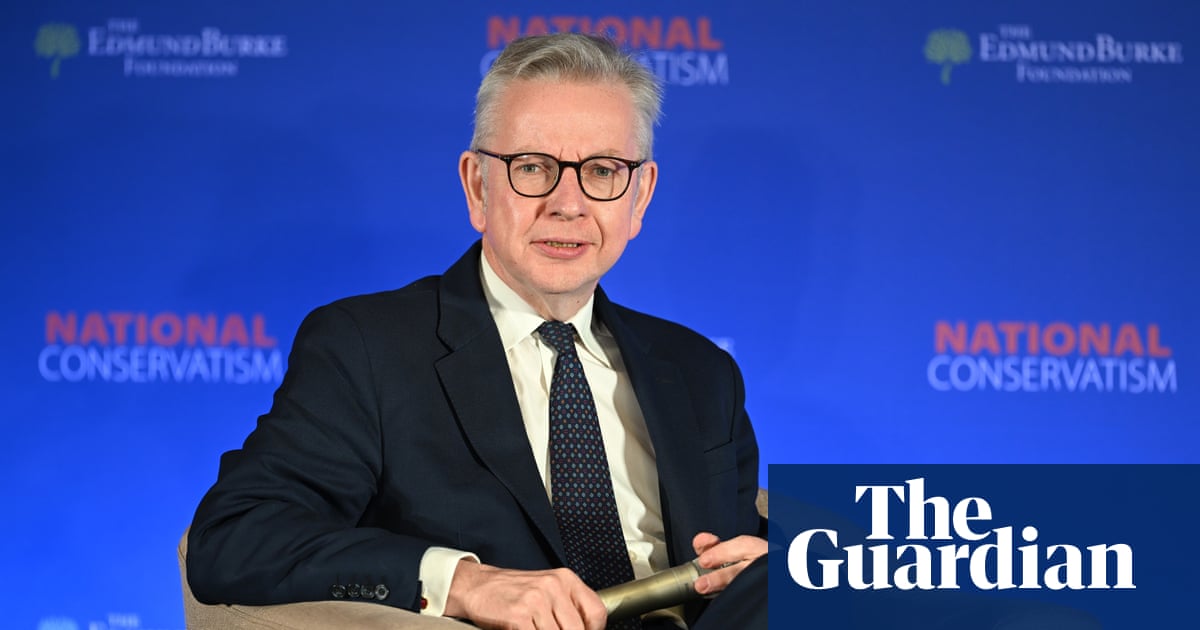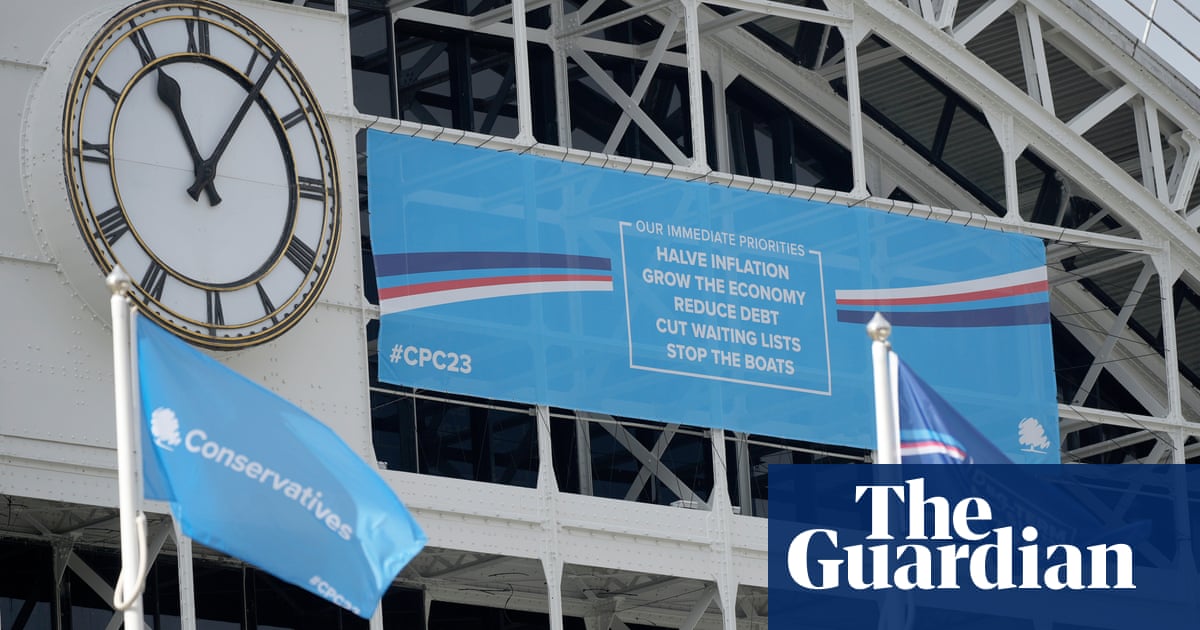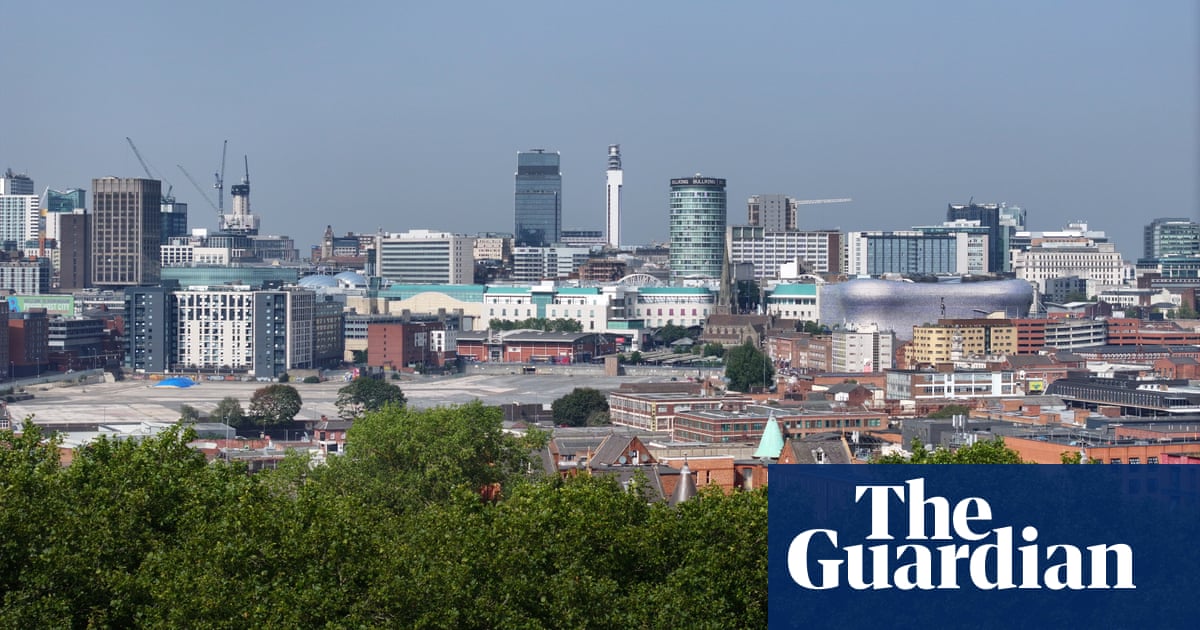
“Everything will be reviewed” as the government considers ways to cut spending and plug a budget black hole, the levelling up minister has said, naming the HS2 high-speed rail project and Liz Truss’s investment zones as possible candidates for savings.
Michael Gove’s comments followed reports that ministers are considering extending the windfall tax on energy companies by three years and increasing it to 30% of profits, but have taken a similar levy on banks off the table.
The new prime minister, Rishi Sunak, and his chancellor, Jeremy Hunt, are searching for ways to fill a £40bn to £50bn budget shortfall for the government next year before their autumn financial statement on 17 November.
The pair reportedly aim to raise £50bn through tax increases and spending cuts in order to give headroom for a slowdown in economic growth that could increase the deficit further.
Asked on Sunday whether HS2 might be at risk, Gove said: “I am sure everything will be reviewed,” adding that the high speed route was a “significant investment”.
He told Times Radio: “As a result of different factors, including mistakes that were made at the mini-budget, we have got to make some decisions, which will be painful … When we face the particularly economic problems that we have at the moment, I’m sure that some capital spending will be cut.”
Gove also told Sky News’s Sophy Ridge on Sunday programme he was reviewing Truss’s proposals for investment zones around the UK. It has been suggested they could cost the government £12bn in lost tax while putting environmental and employment protections at risk.
It is understood the zones may still go ahead, but Gove told Sky: “Anything that might in any way undermine environmental protections is out.”
According to the Sunday Times, another money-saving option could be to delay social care reforms introduced by the former prime minister Boris Johnson by a year, including the £86,000 cap on lifetime care costs that was billed to launch in 2023.
It cited sources saying Sunak had gone cold on the idea of a windfall tax on banks, but was considering extending the energy profits levy on oil and gas firms to also cover electricity generators, as well as raising it from 25% of profits to 30% and extending it until 2028.
Treasury forecasts were said to predict that while the wholesale price of gas and energy are falling, they are predicted to remain at an “elevated level” until at least 2030.
The price of energy around the world soared since Russia invaded Ukraine in February, and Shell revealed last week that it had made record global profits of nearly $30bn (£26bn) so far this year.
However, the UK-headquartered oil company said it had yet to pay the windfall tax and did not expect to do so throughout 2022 because its British corporate entity did not make any profits during the quarter, in part because of heavy spending on drilling in the North Sea.
The company also took advantage of investment reliefs included in the energy profits levy that mean for every £1 they spend increasing oil and gas extraction in UK waters, they could reduce their taxes by 91p.
The government had expected to raise £5bn from the levy this year, but some analysts have warned that extensive use of tax breaks could lead to much less being recouped.
Alok Sharma, the president of the Cop26 UN climate summit who was stripped of his role attending cabinet last week, has called for a change in the energy windfall tax, saying it incentivises investment in oil and gas rather than renewables. Labour has also called for the tax to be tightened to remove the option for energy firms to claim tax relief on more than 90% of the levy if the money is reinvested.
Senior Whitehall officials have raised concern that spending cuts to balance the budget could go too far, with infrastructure investment seen as crucial to securing future economic growth.
While the UK is not yet in recession, it is forecast to enter one later this year. Inflation is above 10% and the Bank of England is expected to announce the biggest hike in interest rates in 33 years when it meets on Thursday to tackle the problem. Markets forecast the base rate will go up 0.75 percentage points to 3%, adding further pressure to the mortgage market.
A government spokesperson said: “HS2 is under way, within budget, and supporting 28,000 jobs. The government remains committed to delivering it on time and to budget.
“As the latest report to parliament sets out, current cost pressures are covered within the existing budget and we continue to identify areas where savings and efficiencies can be made.”












